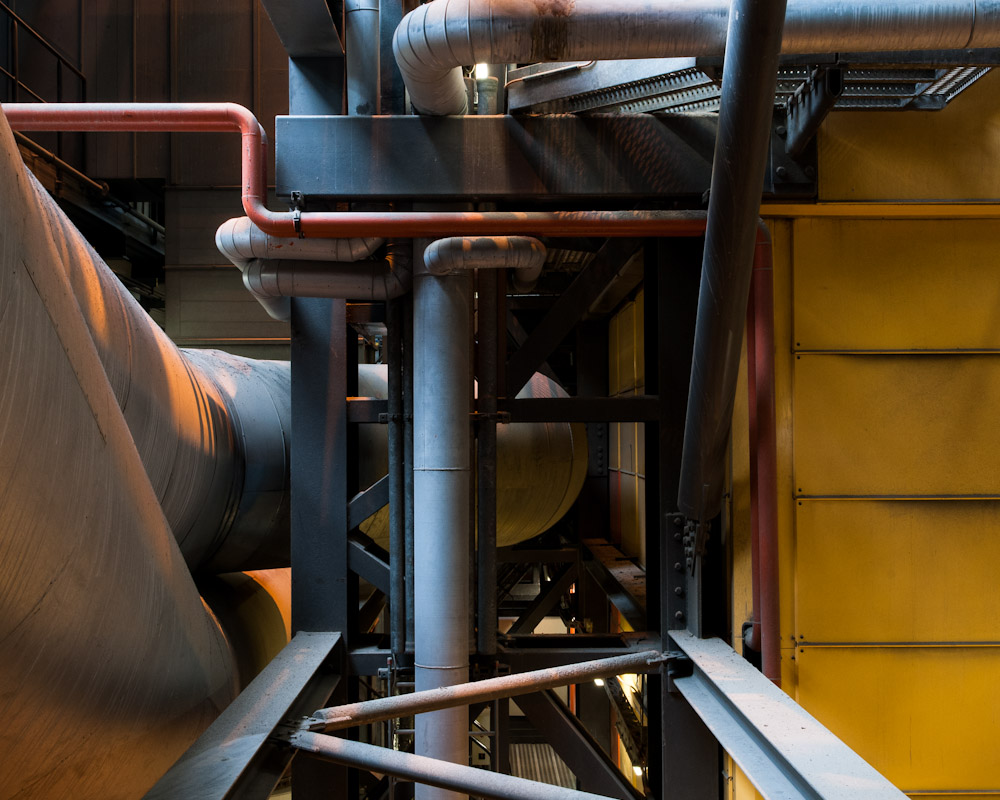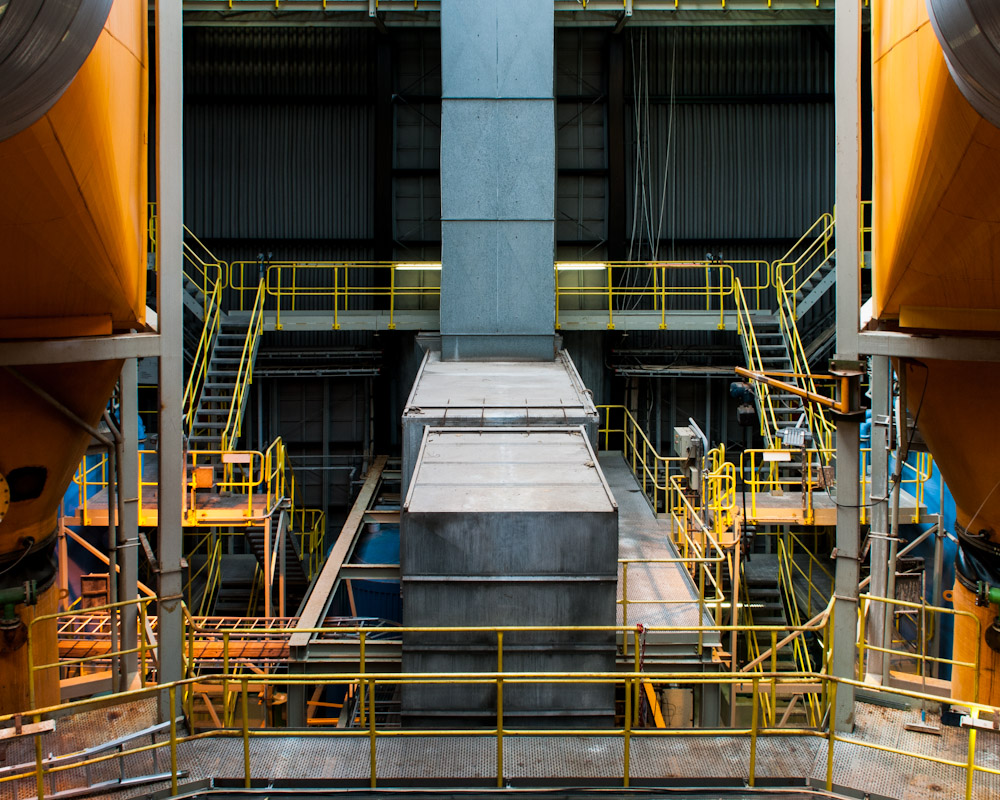Vestforbrænding in Glostrup, just outside Copenhagen, is the largest waste incineration plant in Denmark. That means it's the place where Danish rubbish ends up after it has been chucked in the bin and forgotten about. Lorries carrying around 1,500 tonnes of waste turn up at the incineration plant every day, and the burned waste produces energy and hot water; the waste is seen as a resource that can be substituted for fossil fuels such as coal, oil and gas. You would imagine this place would stink like hell, but actually it doesn't - it's so clinical that the only time I even saw any rubbish was from behind a glass window while the trucks dumped it and machinery took care of the rest.
The good citizens of Copenhagen and the surrounding municipalities take some of their rubbish to recycling centres, where it is sorted into various different "waste fractions" and then sent on to the right places to be recycled. All the rubbish that doesn't get sorted, the stuff that ends up in a plastic bag and is thrown in the general trash bins in the courtyard, is collected once a week by the bin men and carted off to the incineration plant in Glostrup. That rubbish is dumped in a massive bunker, where huge mechanical grabbers (like the ones in amusement arcades that tempt people to try to grab a fluffy bunny) pick up five tonnes of rubbish at a time and drop them into big incinerators that burn 24 hours a day, 7 days a week. 20% of the energy produced becomes power for the national grid, and 80% is turned into hot water, which is then pumped around Copenhagen and the surrounding area to provide heating. Even the ash that is left over gets reprocessed, being used as a filler in construction. There are some left-overs, from cleaning the fumes before they are released into the atmosphere, that have to be put into landfill - and this is equal to about 3% of the total waste input.
Coming from the UK, over the last few years I have seen a huge push to get people to sort their rubbish at home; now, every household has separate bins for recyclables, food waste, garden waste and general waste. It makes people feel good about themselves; my mum is nuts about it. I've always been surprised at the lack of opportunity to sort waste in Denmark - I have lived in apartment blocks where everything just goes in the same bin, no matter what it is, and I've always thought it surprising for such a "forward thinking" country as Denmark. But apparently, until recently, it has just not been efficient enough to sort rubbish; the energy that can be produced by incineration of the waste is so great, that it's just not worth the effort to sort it all. That is starting to change as more consideration is paid to the amount of energy put into source raw materials in the first place, and there are plans to introduce more sorting of rubbish at a household level.
Interestingly, the UK has always been seen as the environmental "bad boy" of Europe because of its willingness to just put everything into landfill. But now, as technology advances and incineration and recycling become more efficient, all of that landfill can be dug up and used to create energy and new products in ways that were just not possible a few years ago; some believe that the UK is sitting on a potential gold mine of rubbish. There have even been suggestions that, in countries like Denmark where incineration is very efficient, some waste that could be incinerated should be landfilled - because in a few years time, technology will allow us to get a lot more out of that waste than is possible at the moment.




















